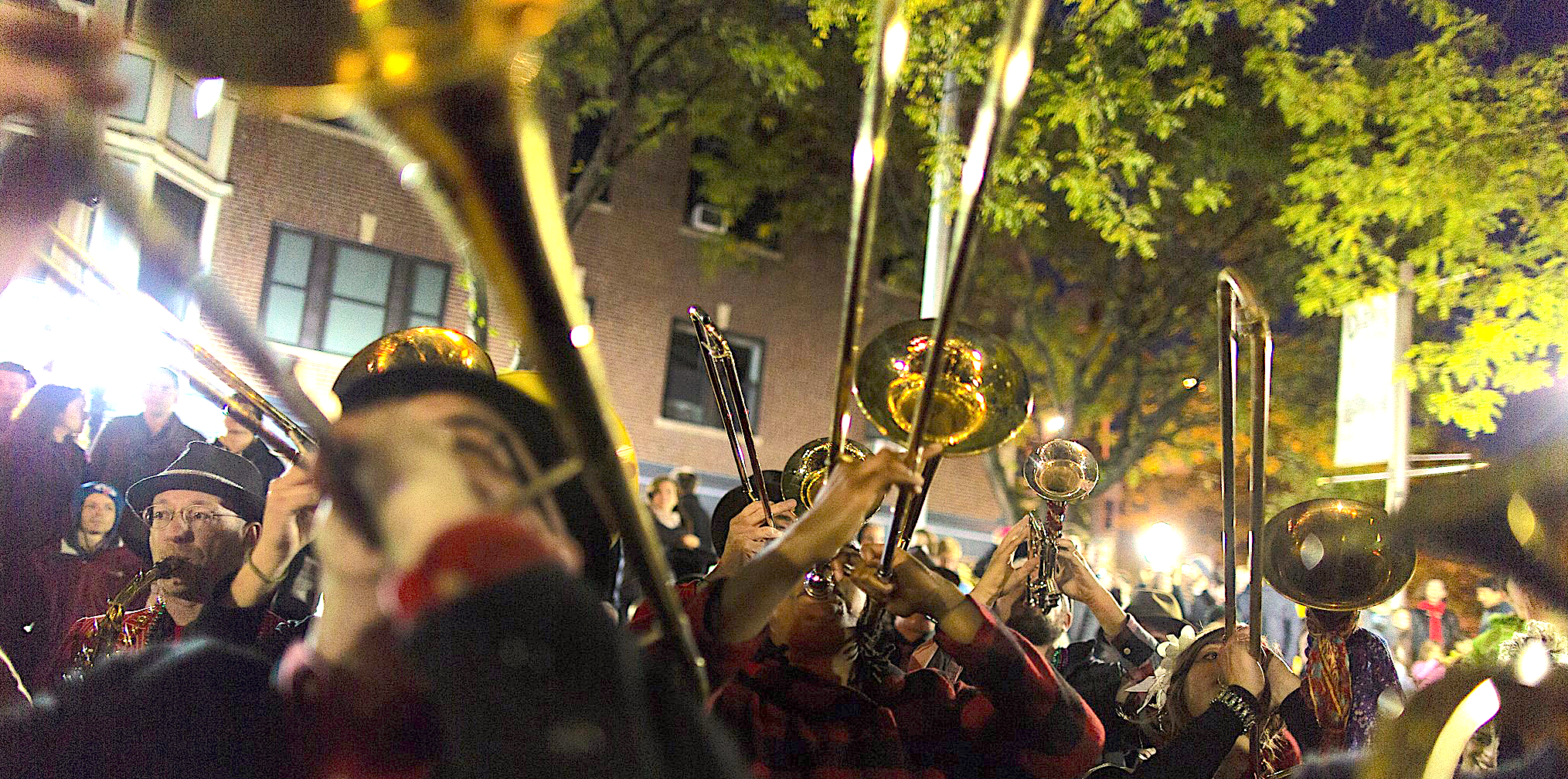
Helpful information, fun charts, and additional resources for SoH trombonists and trombone lovers everywhere.
- Playalong videos of our songs
- Trombone choir charts
- Helpful tutorials
- Links to fun channels and playlists
- Tips on choosing a trombone
Videos of our trombone parts
- African Marketplace – Opening vamp, Part 1, Part 2, Part 3, Part 4, Part 4 harmony
- Blackbird Special – Part 1, Part 2, Part 3, Part 4, Part 5, Trombone part, Walking part
- Cariñito – Part 1 simple, Part 1, Part 2, Part 3, Part 4
- Eye Know – Part 1 low, Part 1 high, Part 2, Part 3, Part 4
- Funkytown – Part 1, Part 2, Part 3
- Groove Is In The Heart – Slide, Vamp low, Vamp high, Part 2 low, Part 2 high, Part 5 low, Part 5 high
- Guaglione – Full form, Part 1, Part 3
- La Murga – Full form, Part 1, Part 2, Part1 harmony, Part 2 harmony, Full form harmony
- Push It – Parts 1 & 2, Part 3, Part 3 harmony
- Stay Human – Part 2, Part 3, Part 4, Part 3 harmony, Part 4 harmony
- Soul Bossa Nova – Part 1, Part 2 simple, Part 2
- Track Suit – Part 1, Part 2, Part 3, Part 2 high, Part 2 harmony
- Uptown Funk – Part1, Part 2, Part 3, Part 4, Part 5, Part 5 harmony1, Part 5 harmony2
- Video Killed The Radio Star – Part 1 low, Part 1 high, Part 2
- We Got That Fire – Part 1, Part 2, Part 1 harmony
Trombone choir repertoire
- Lean On Me — parts, score, mockup
- Miserlou — parts, score, mockup, Xavier Cugat, Dick Dale
- Move Over — parts, score, mockup, Janis Joplin original
- Music Makers — parts, score, mockup, Harry James original, Juan García Esquivel
- Never Gonna Let You Go — parts, Friendsgiving 2021, Slavic Soul Party
Helpful tutorials
Learning the Trombone in 1 Month – Week 1, Week 2, Week 3, Week 4
Mr. Glynn – Assembly, First Sounds, Learning the Slide, Tonguing
Learn to Play Jazz Trombone with Natalie Cressman
Learn Funk Trombone with Natalie Cressman
Channels and playlists
Choosing a Trombone
The most important thing about a trombone is that the slide moves freely, without any catches, friction or drag. Check any ads for horns that are in “excellent” or “very good” shape, ignore others, and always look for claims that the “slide moves freely” or is “clean and smooth” or “has quick action” or some such re-assurance. Knowledgable sellers know to indicate this, so if they don’t specifically mention the slide’s condition this way, best to look elsewhere.
Standard “student” or “intermediate” trombones, preferably manufactured in the U.S. or Japan years ago (1990s or earlier is best), are generally widely available at an affordable price (~$250-$500). A quick search of trombones online will offer thousands of brand new student trombones for that price range, but it will very likely be of far inferior quality, with thinner, cheaper materials, and likely won’t be repairable if anything goes wrong. Even if a good horn has been sitting in a closet for years and years, as long as it was stored properly in a dry place, if the slide moves freely once lubricated, that should be a good, solid horn. And as long as they don’t affect the slide action, minor dings, bends and scratches won’t affect their sound, and are usually easily repaired for these older, much better horns.
Trombones, like people, are all different: larger, smaller, heavier, lighter, each with a different feel. And the best way to know if a horn is right for you is to try it out. These student makes/models are all good bets to plug into Reverb or eBay search, and we have some on hand to try out:
Bach TB301
Conn Director
King 606
Olds Ambassador
Yamaha YSL-354
For advanced players looking for professional models, the sky’s the limit on what you can spend, but popular models often available in the $800-$2000 range would include, from smaller/lighter horns to bigger/heavier horns, the Bach Stradivarius LT16M and King 2B (small bore), the King 3B, Conn 6H and Bach Stradivarius 36 (medium bore), and the King 4B, Conn 8H, or Bach Stradivarius 42 (large bore). As always, best to try out first, perhaps at a retail store (see below).
A Bach 6½ AL mouthpiece is a good size and shape for most beginners. But like trombones, mouthpieces vary widely, as do the preferences of players. So once you have some experience playing, we suggest you try out some different mouthpieces to find the one that is best for you.
For reliable online retailers that sometimes offer good deals on new or demo model horns and accessories, check out Woodwind Brasswind and Musicians Friend. And for local retail and repairs, we recommend Osmun Brass (Acton, MA) and Virtuosity (near Boston’s Symphony Hall). For minor brass repairs, we recommend John Lochiatto in Waltham (brightbrass@rcn.com). And for those up for a road trip to try out just about any horn or mouthpiece ever made, head to Dillon Music in New Jersey.
Trombones are relatively low-maintenance (phew!), and essentially waterproof, unlike most other instruments, which makes them quite durable. But depending on how often you play, it is a good idea to give your trombone a bath every few months, or anytime the slide is especially sticky or you notice an odor, etc. Here’s a quick tutorial on cleaning, and here’s a quick tutorial for lubricating your slide. For those looking for a dose of old-school maintenance, using superslick or other slide cream with water (rather than slide-o-mix or other lubricants), check out jazz legend Bill Watrous showing his secret to maintaining a smooth slide.

Top image from Environmental Encroachment, Chicago, IL; photo from HONK! Festival 2014, Somerville, MA
